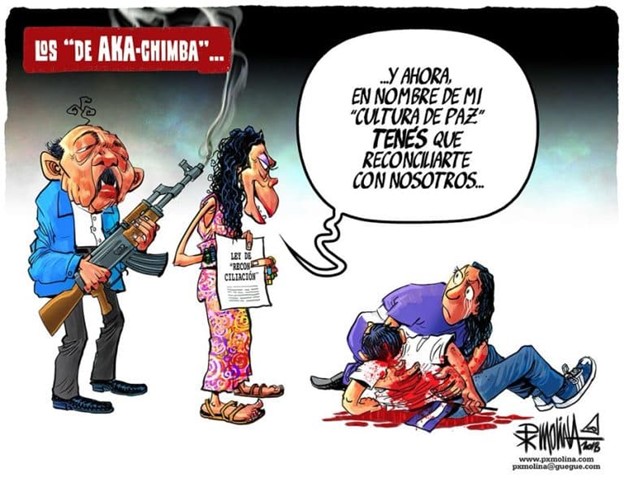
In Nicaragua, achieving a reconciliation will be the job of the opposition to implement the processes of transitional justice.
By Victor Obando Valverde (Confidencial)
HAVANA TIMES – “You asked for a list of our dead, and here it is: Moroni Lopez Garcia, Managua, National Engineering University / Franco Valdivia Machado, Estelí / Darwin Manuel Urbina, Managua / Hilton Rafael Manzanares, Managua / Richard Pavon Bermudez, Tipitapa / Alvaro Manuel Conrado Davila, fifteen years old. We declare them all presente.”
Thus began the reading of the names of those assassinated at that first Nicaraguan national dialogue in 2018. At that time, those of us hearing that list felt our hair stand on end and a huge lump rise in our throats.
“Justice, Justice!” was part of the slogans people shouted in the streets during the sit ins, demonstrations, and marches. But – what exactly is justice? According to the Royal Spanish Academy, it’s the moral principle that leads us to determine that all of us should live honestly – similar to rectitude, impartiality, equity, neutrality, equanimity, objectivity, honor, honesty probity, and reason.
According to the documentation of the Inter-American Commission for Human Rights, 355 people were murdered in Nicaragua between April 2018 and July 2019. Since then, the topic of justice has become one of the country’s largest banners. Those weren’t common crimes or random killings but crimes against humanity carried out by the government.
Article 7 of the Rome Statute of the International Criminal Court defines crimes against humanity as ”acts committed as part of a widespread or systematic attack directed against any civilian population, with knowledge of the attack.” Article 7, Item (k) also includes: “Other inhumane acts of a similar character intentionally causing great suffering, or serious injury to body or to mental or physical health.” That’s precisely what happened in Nicaragua, a brutality committed by the Ortega-Murillo reg


